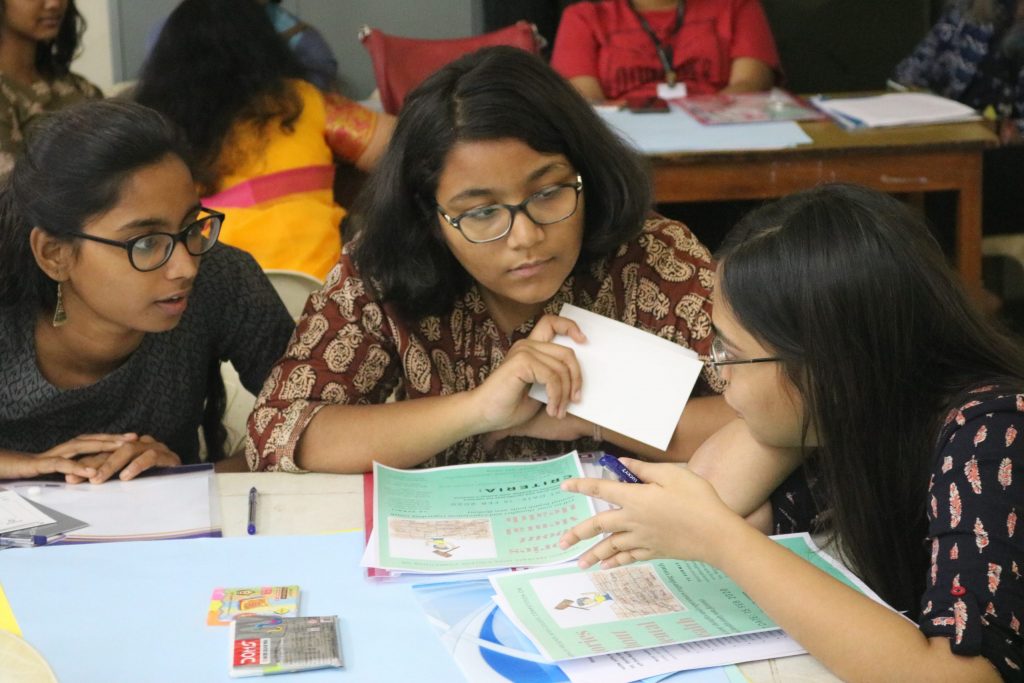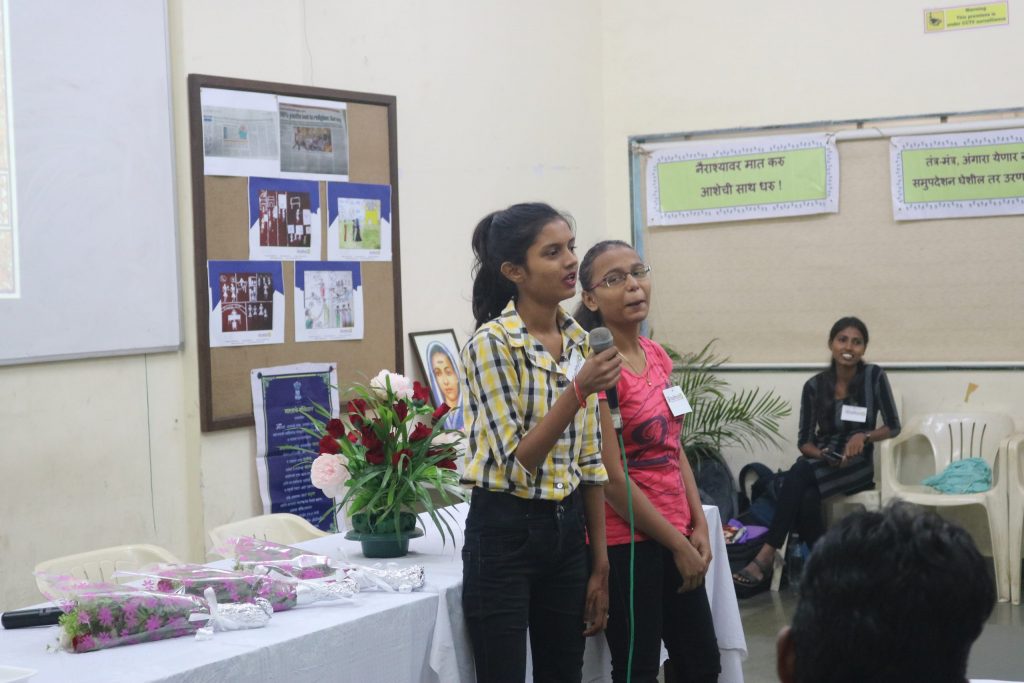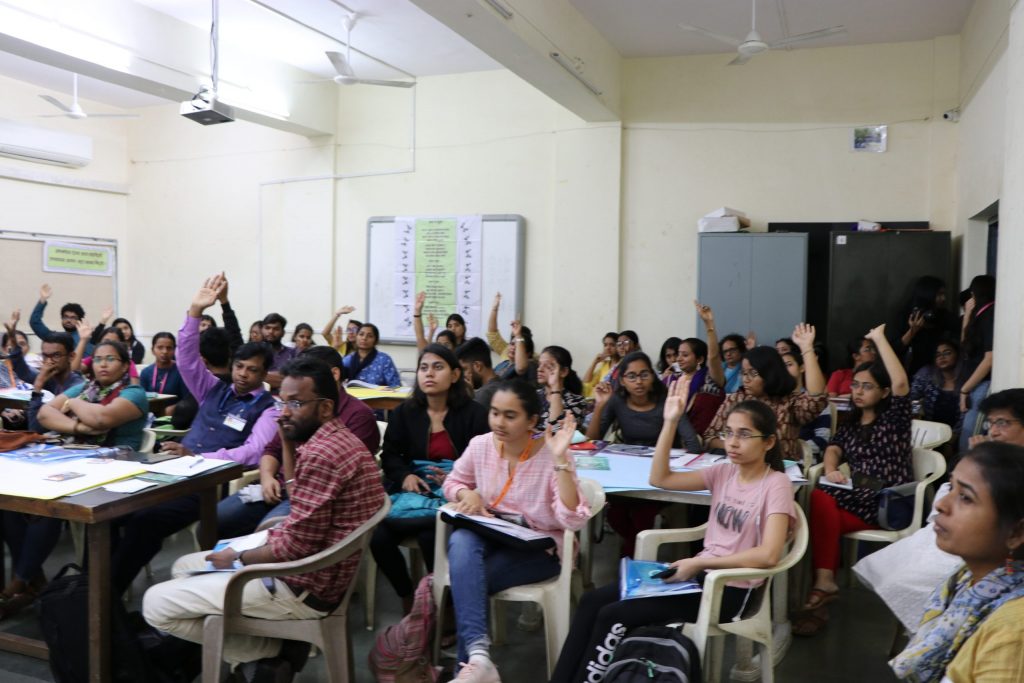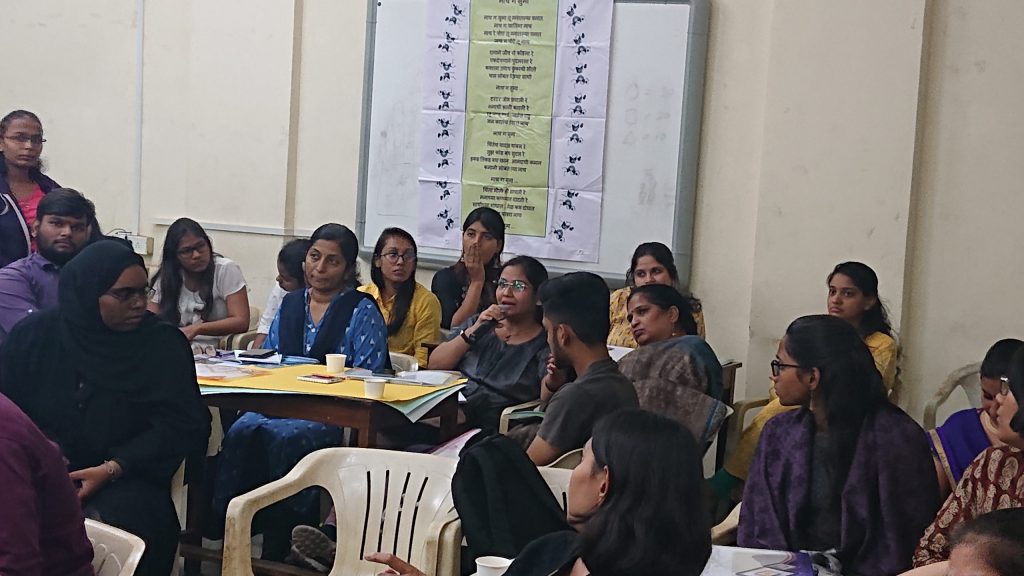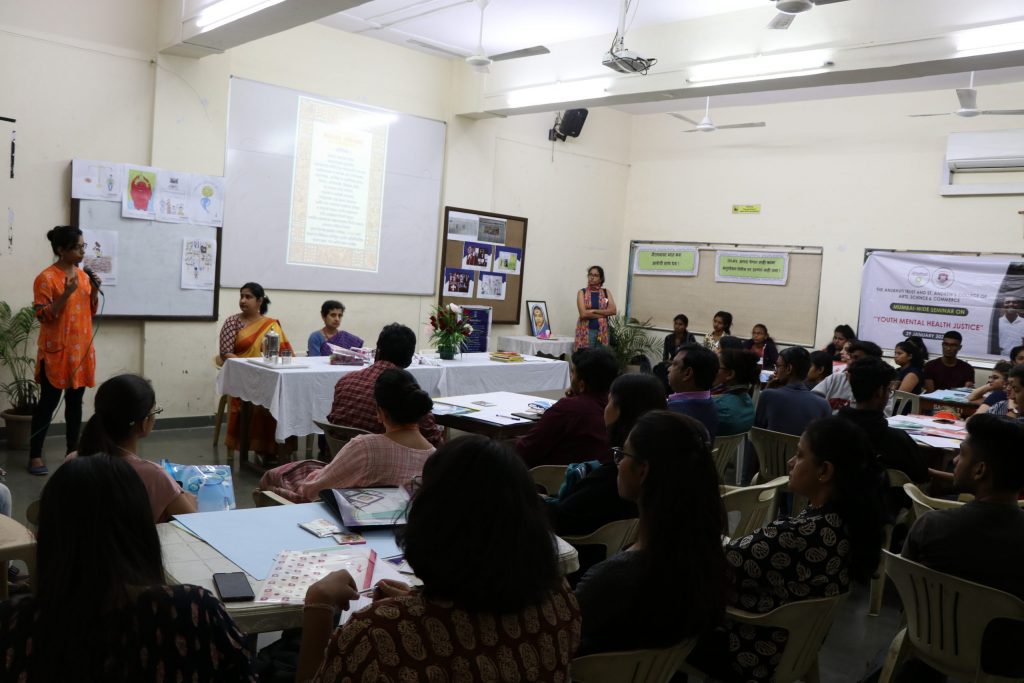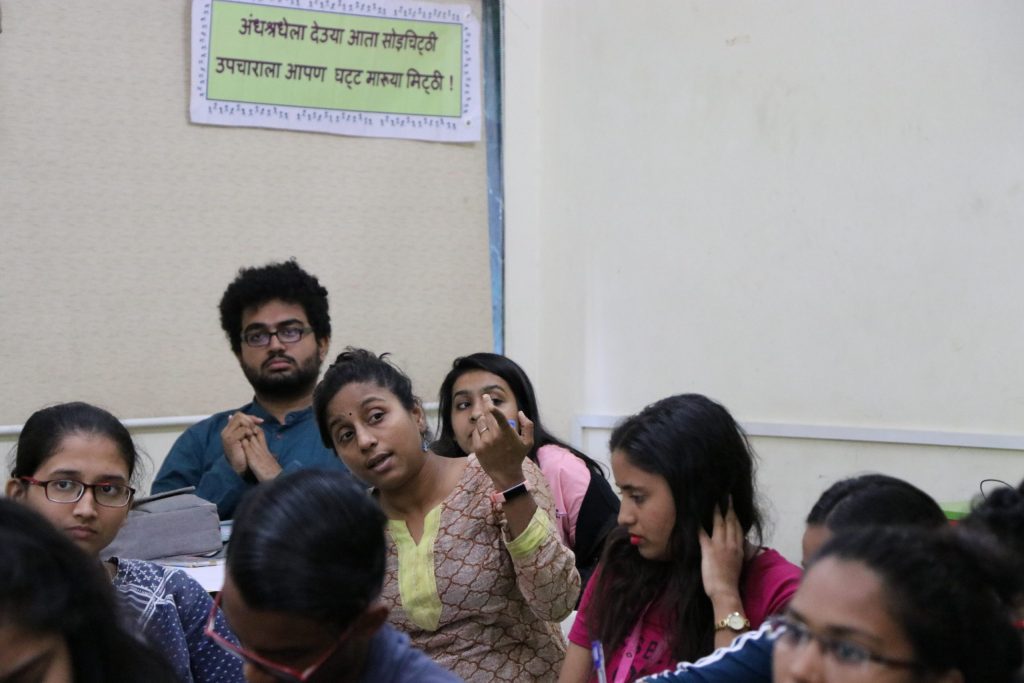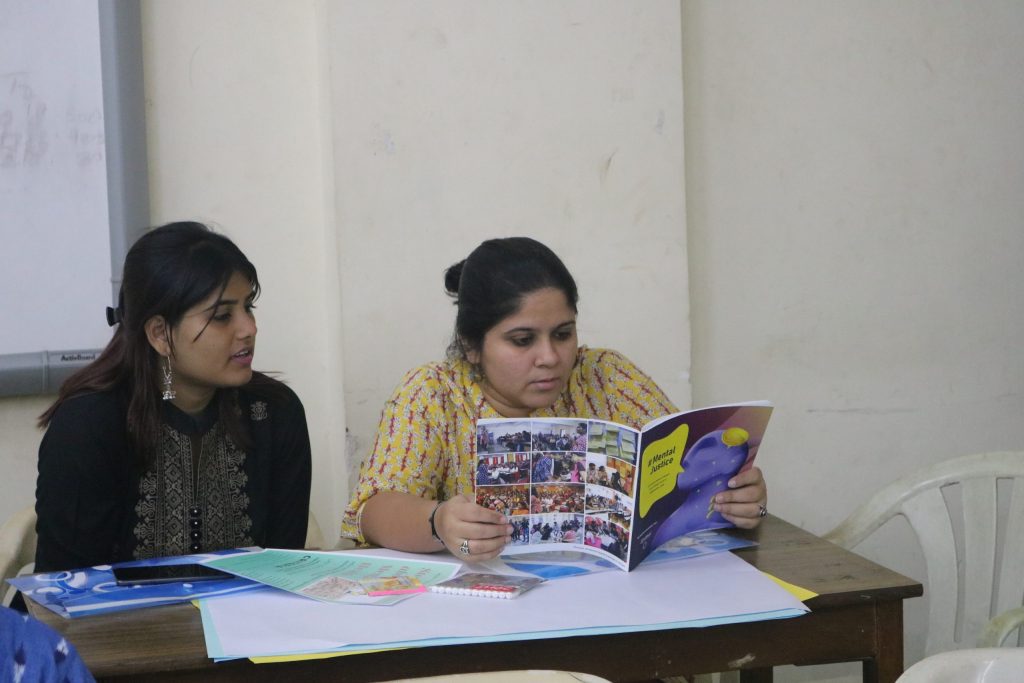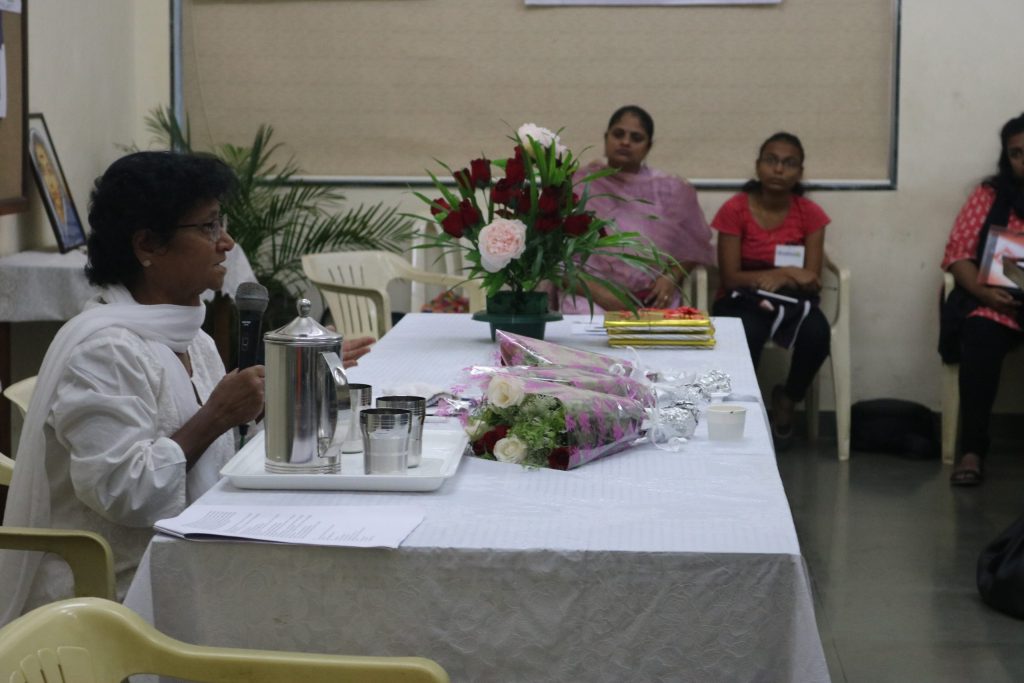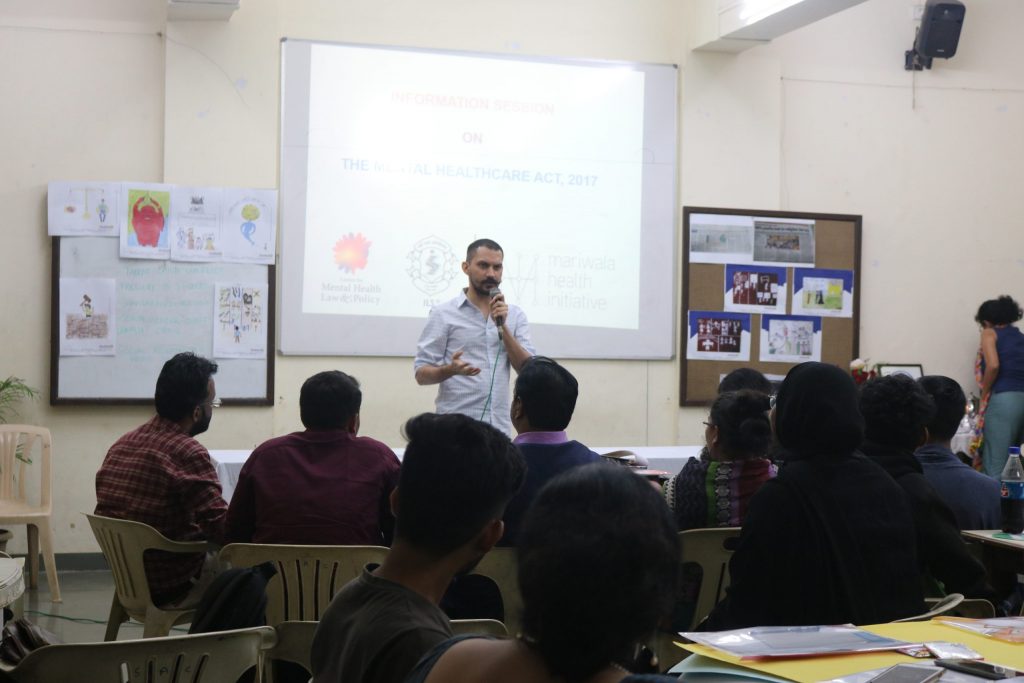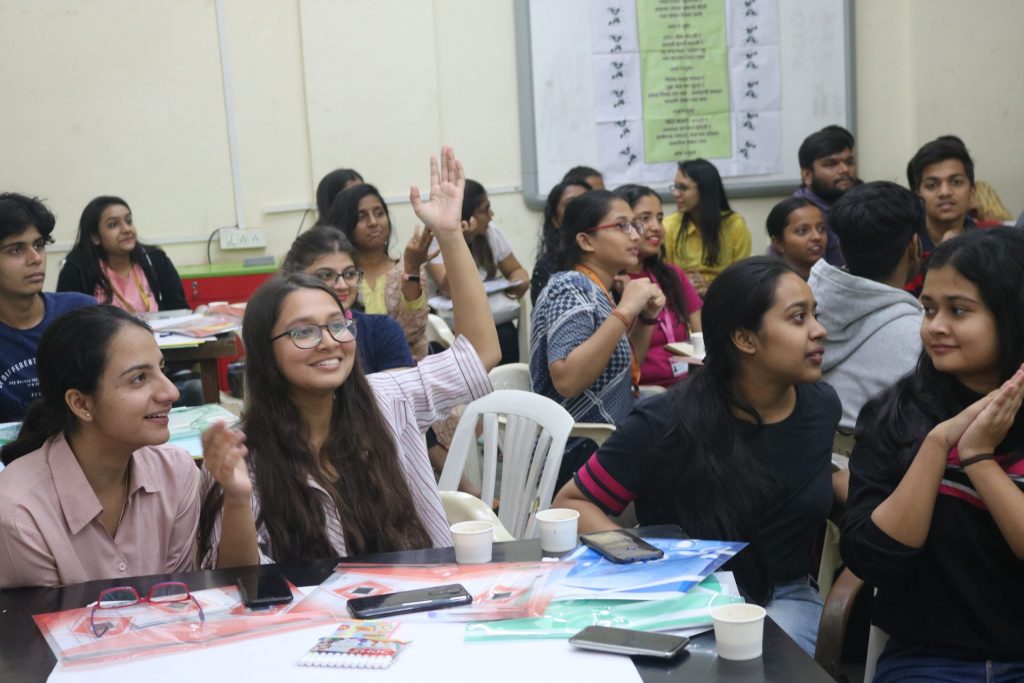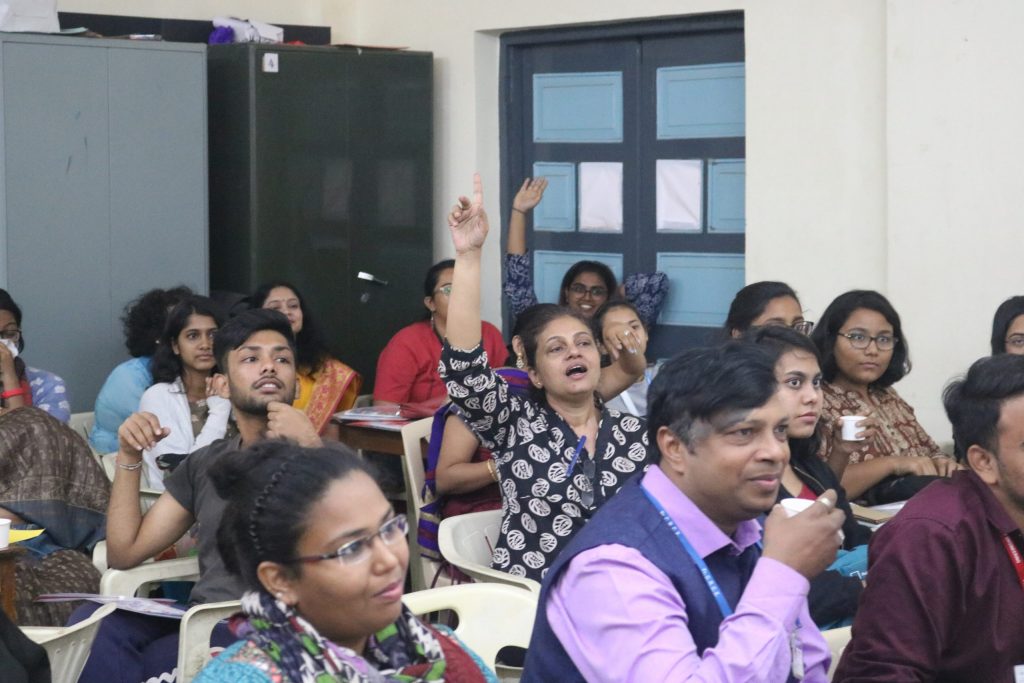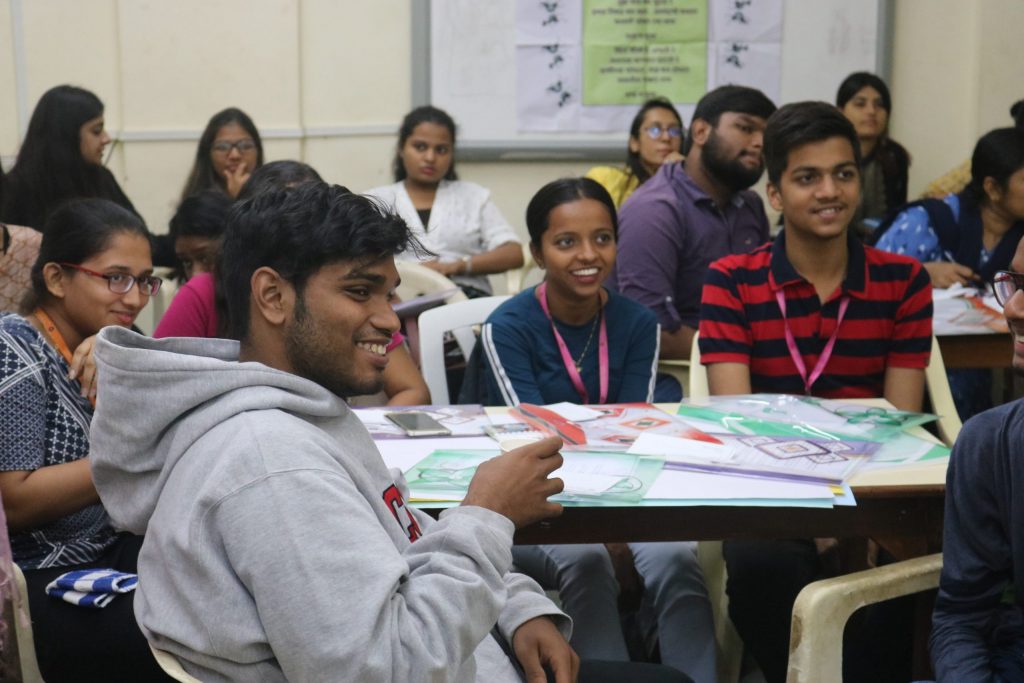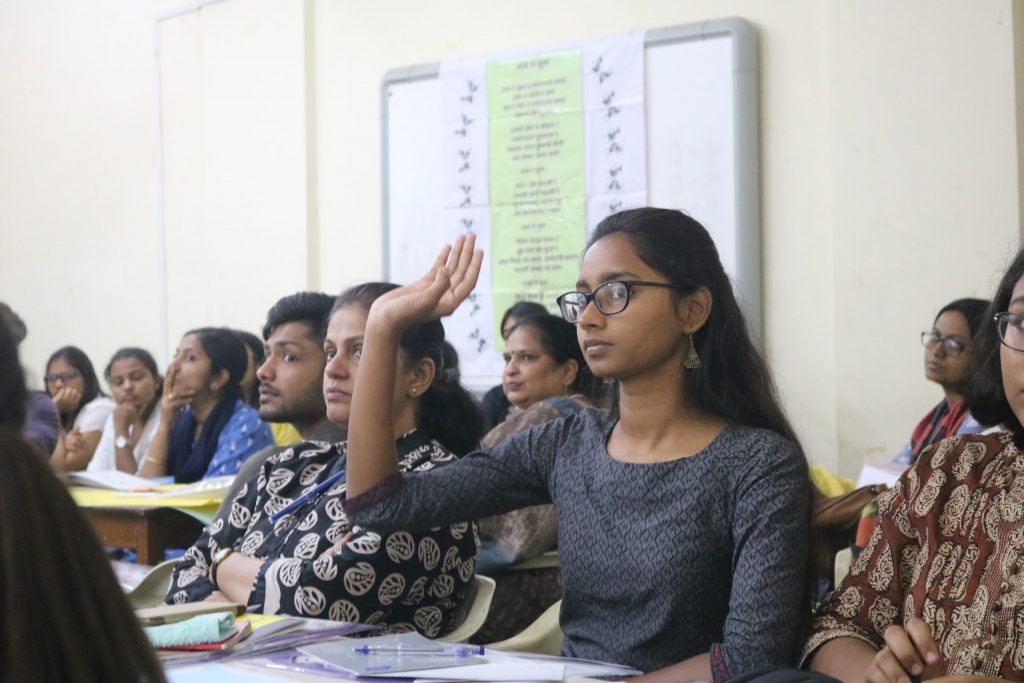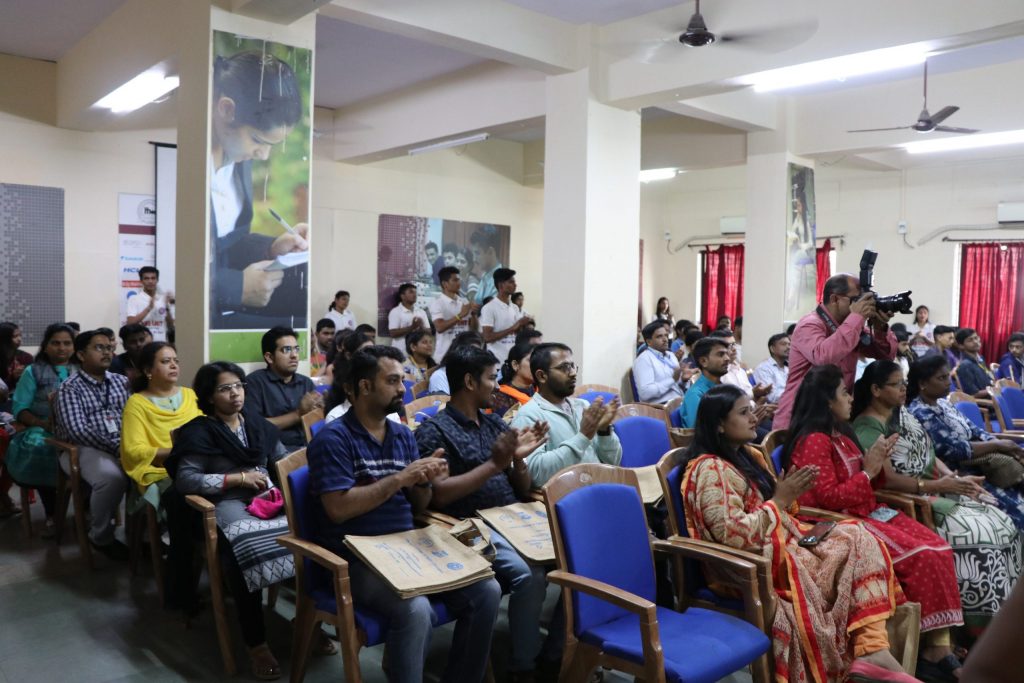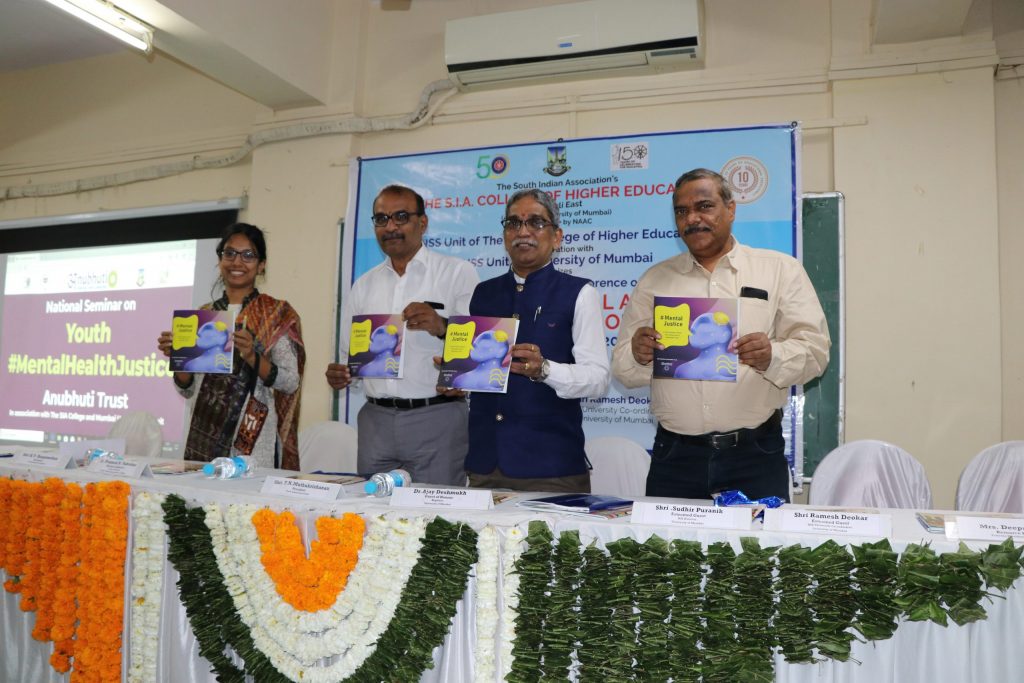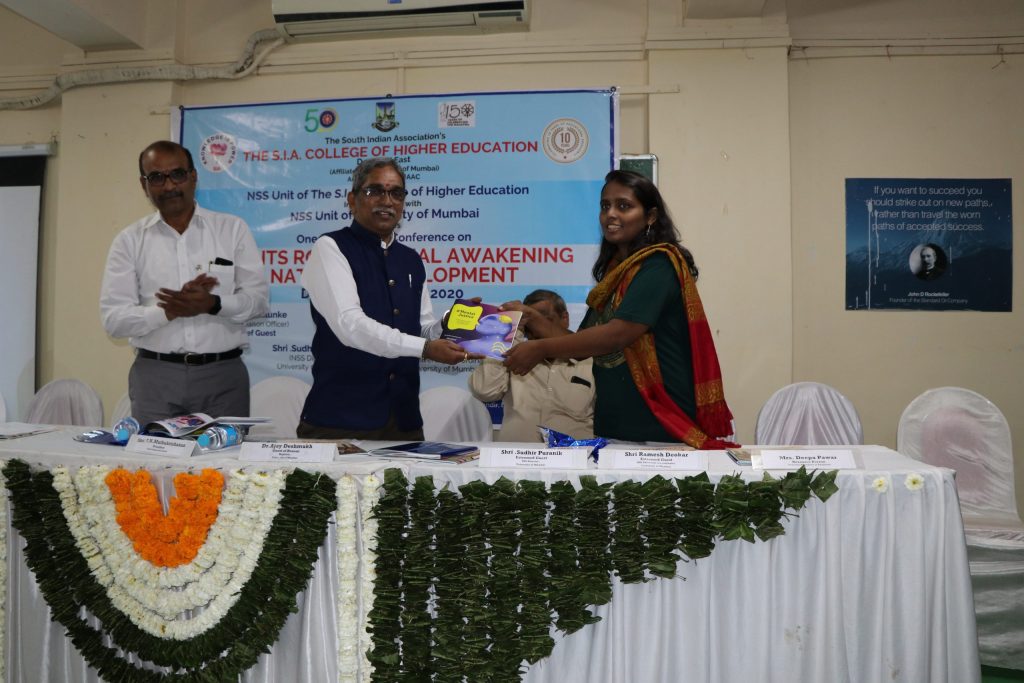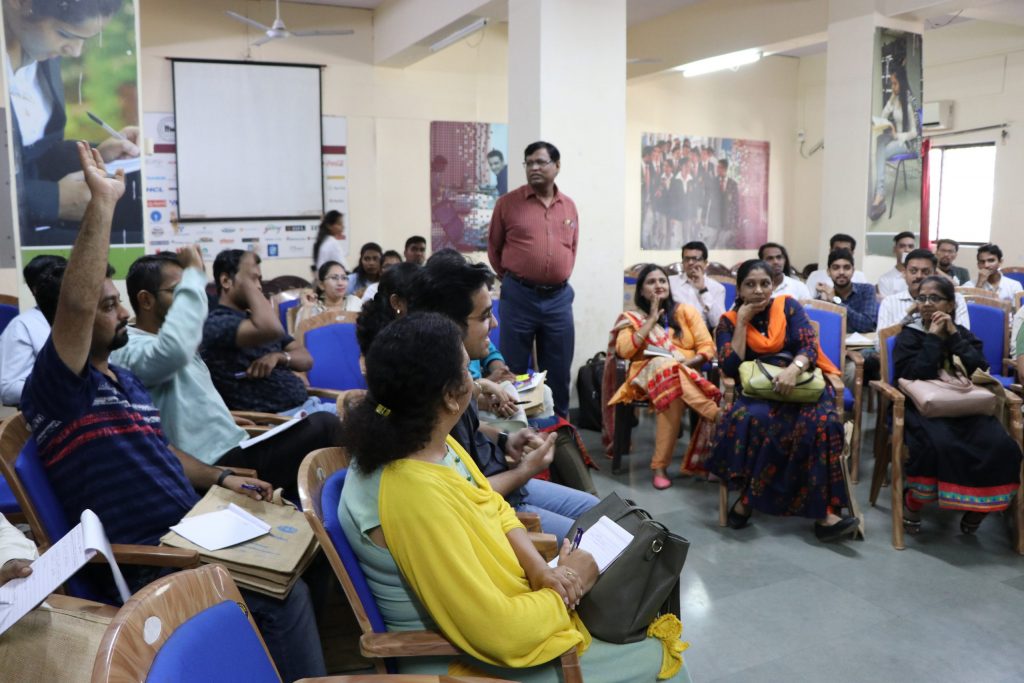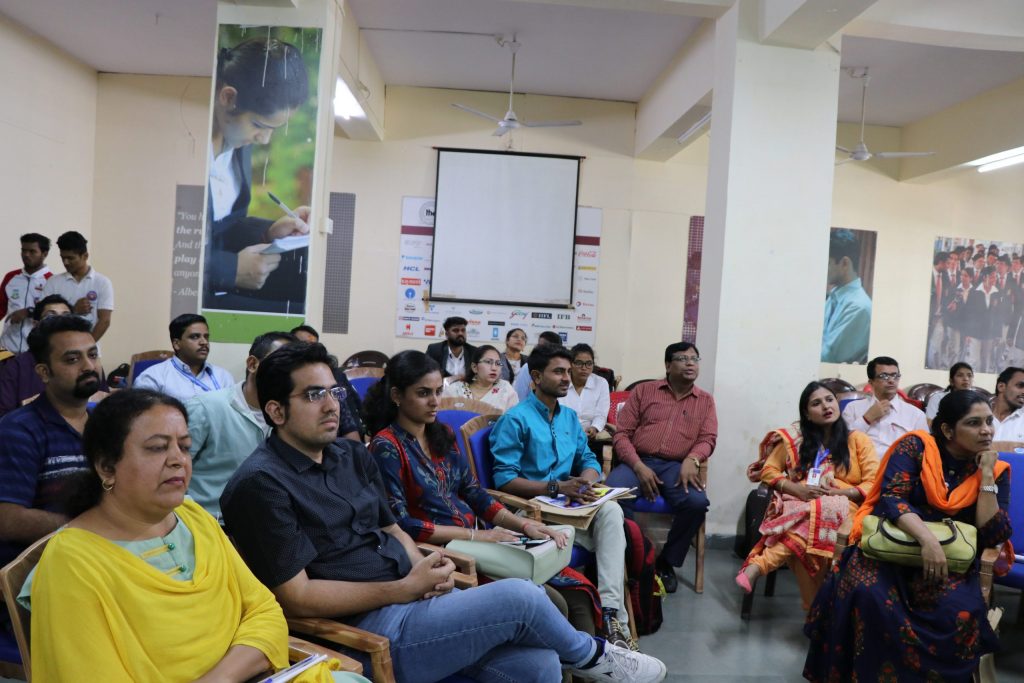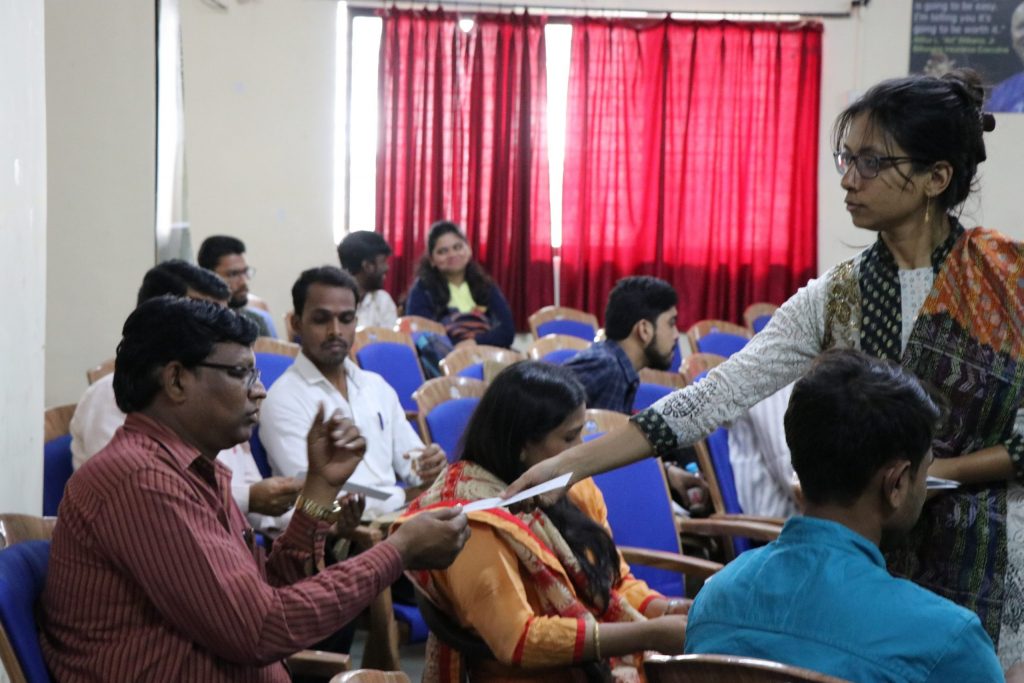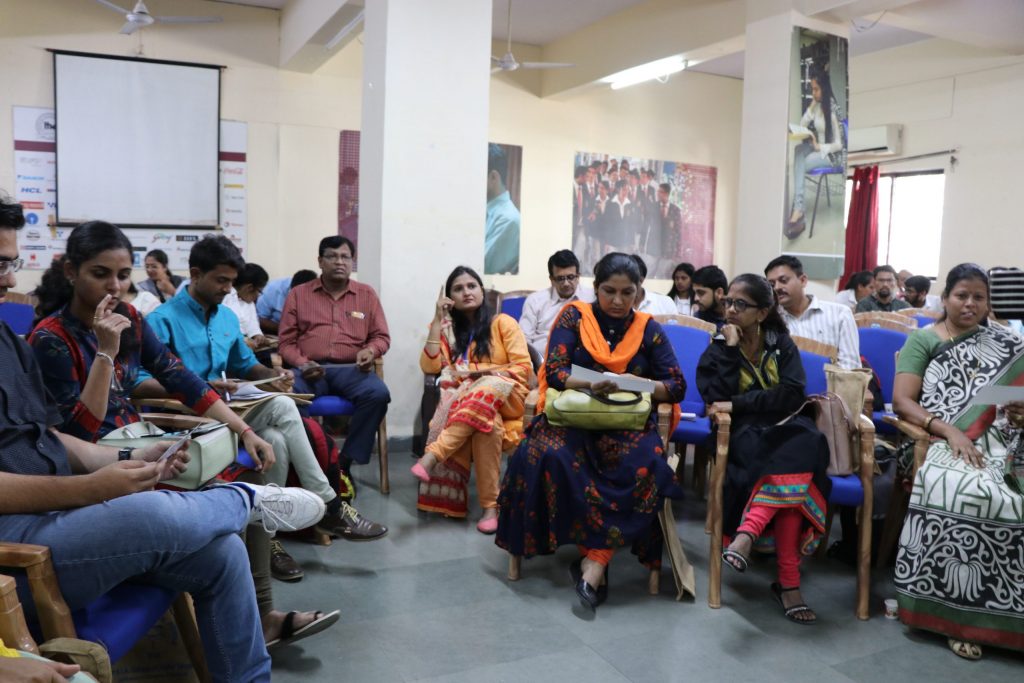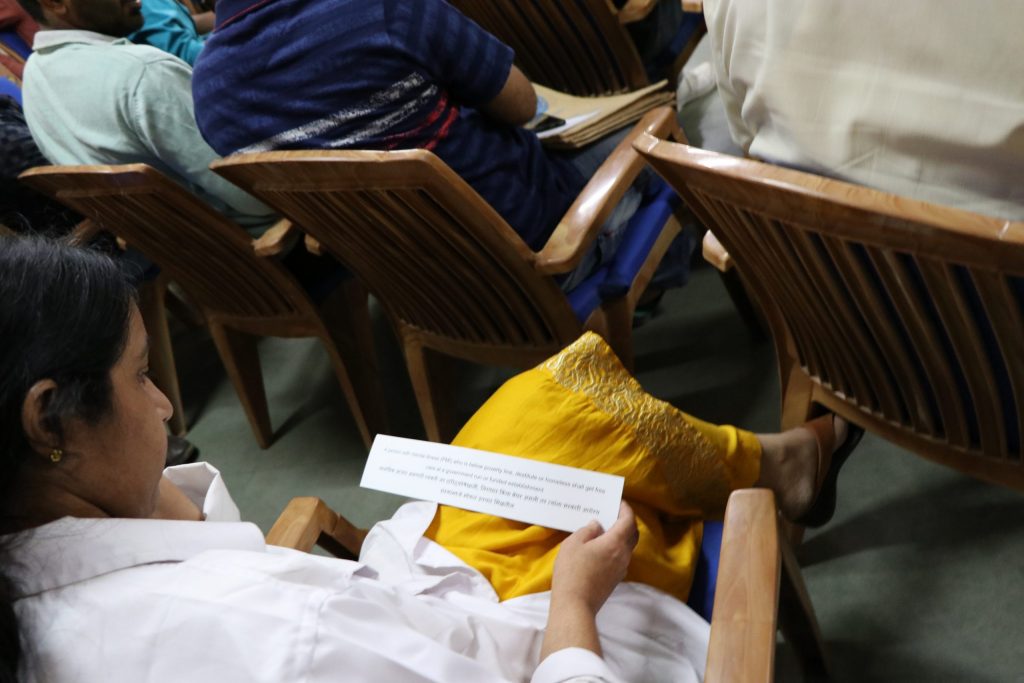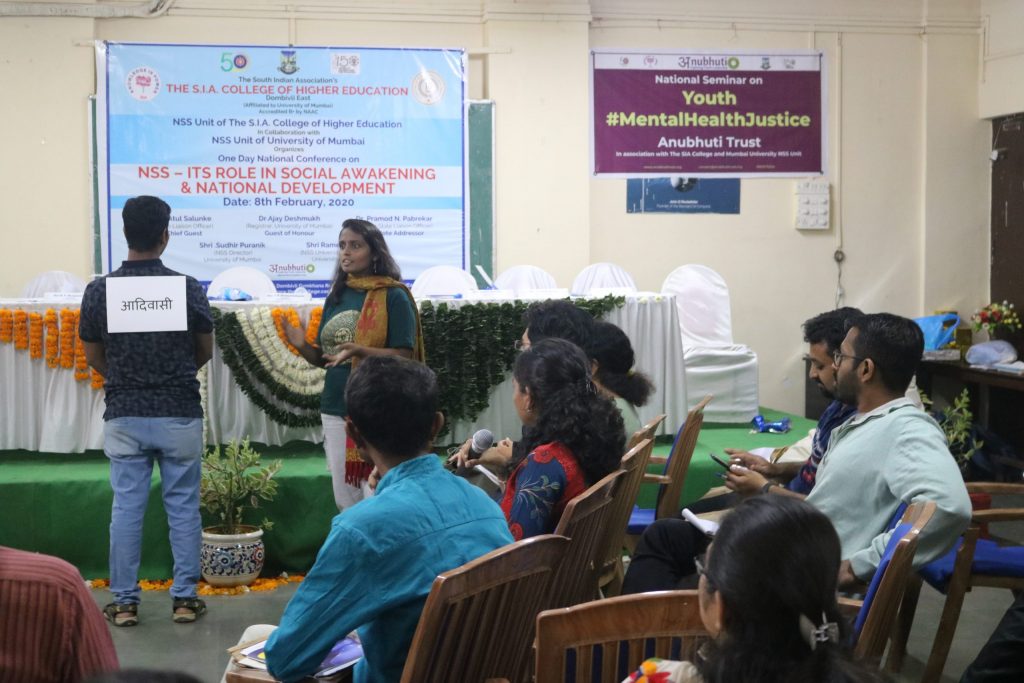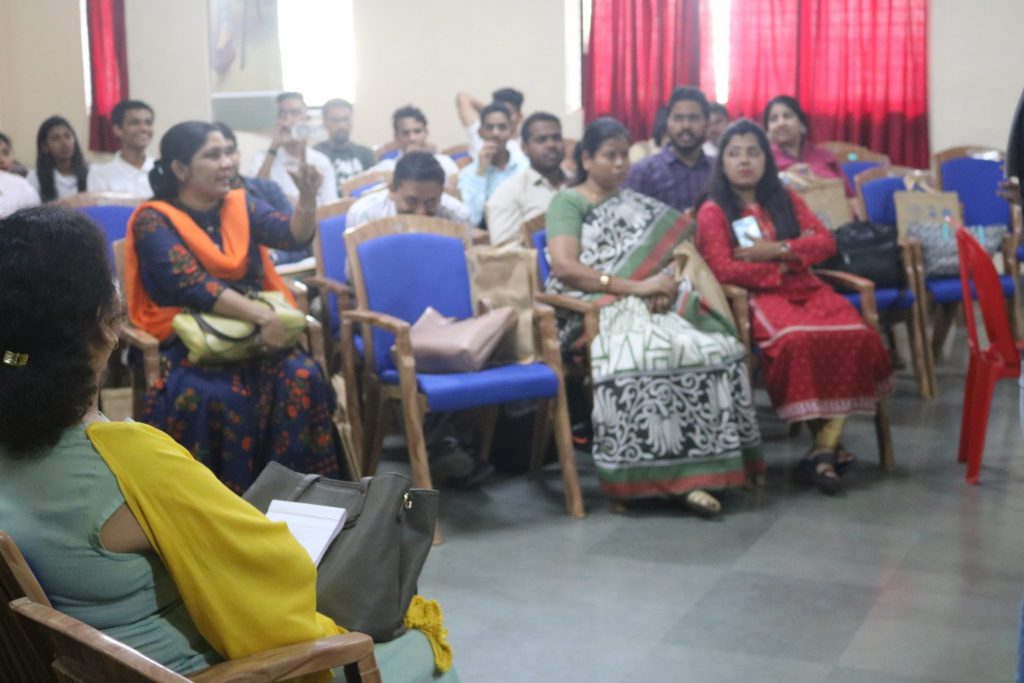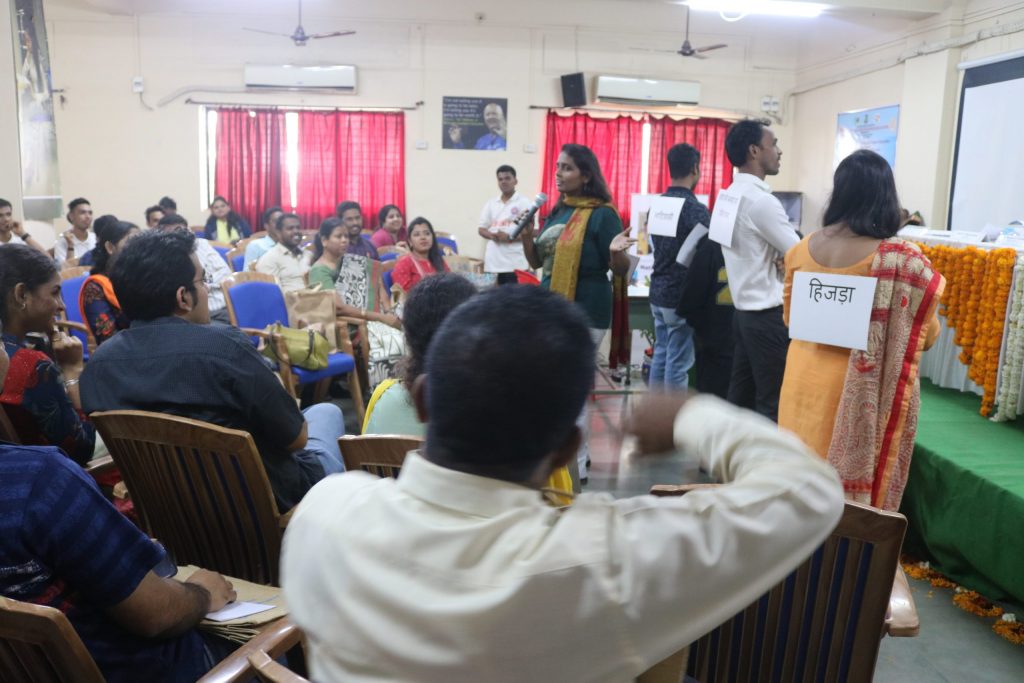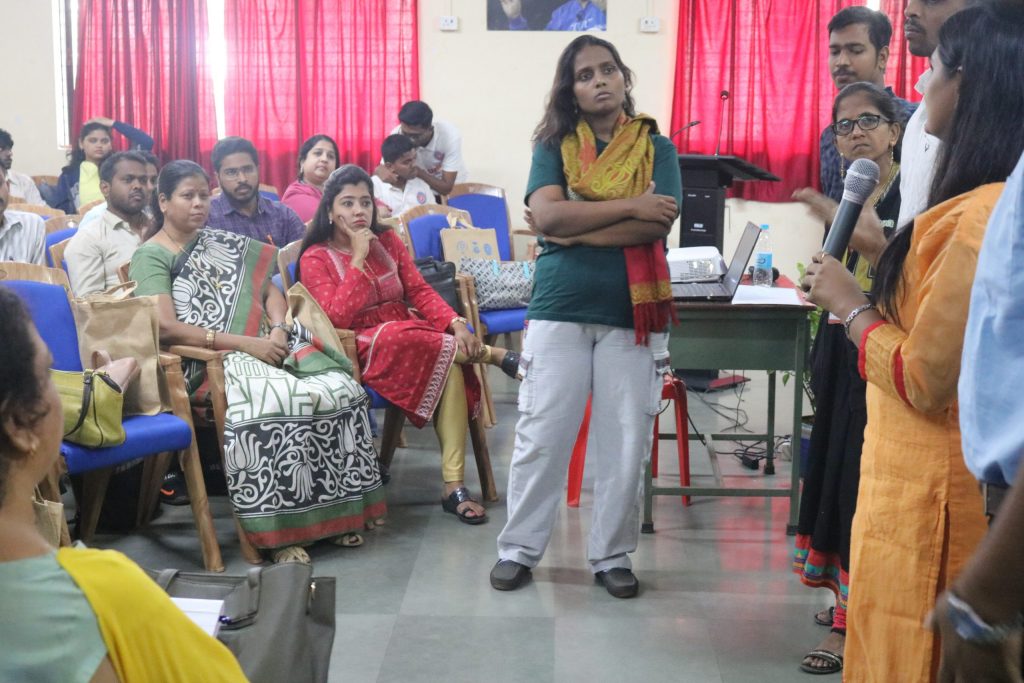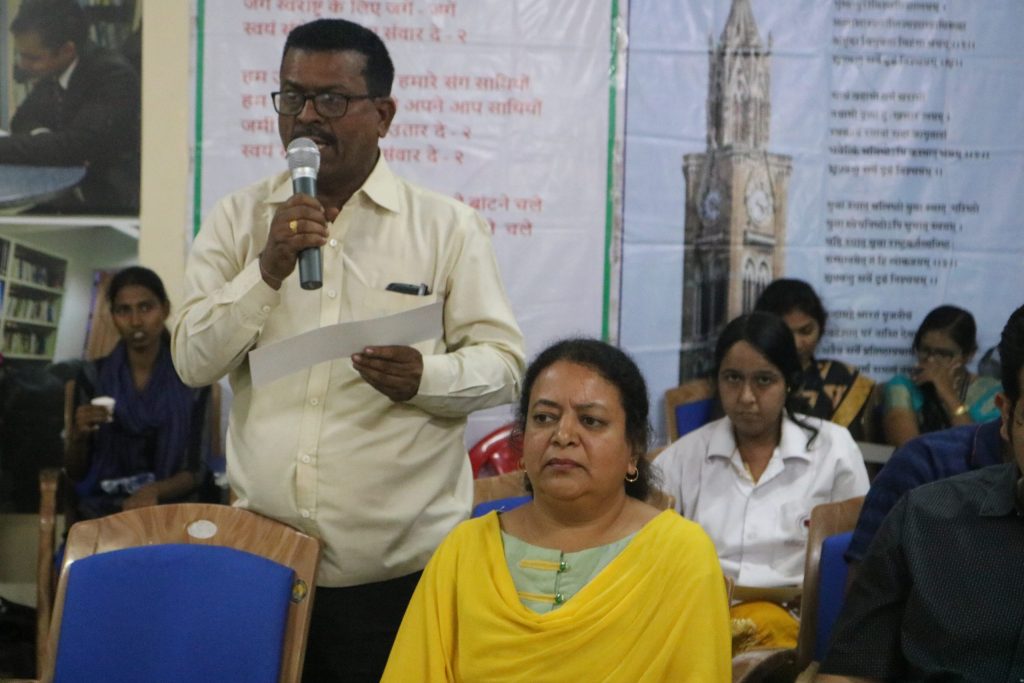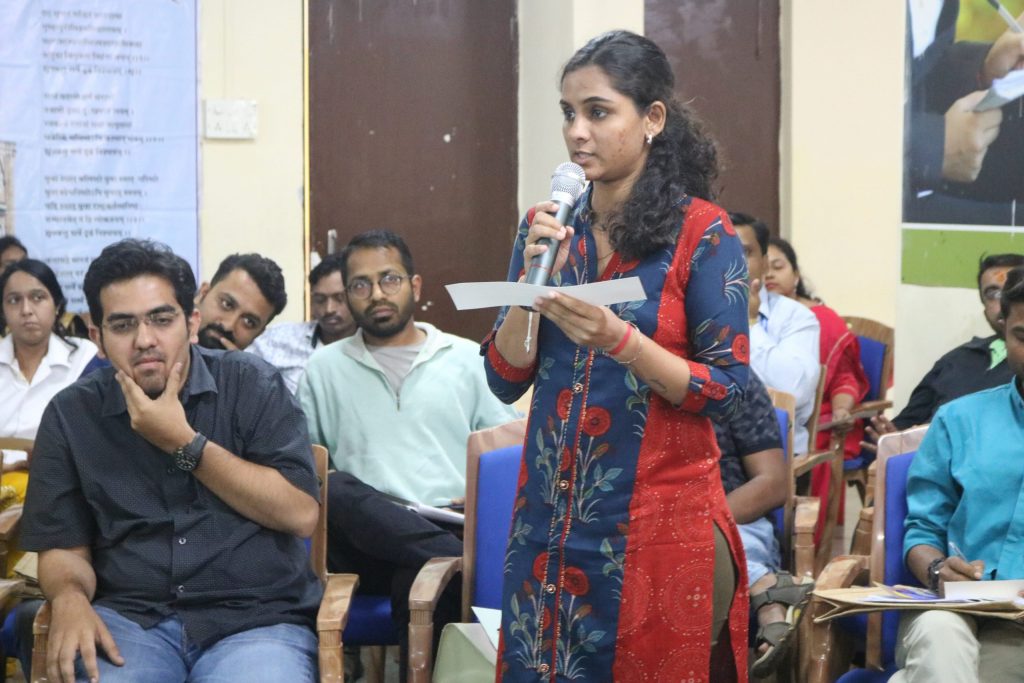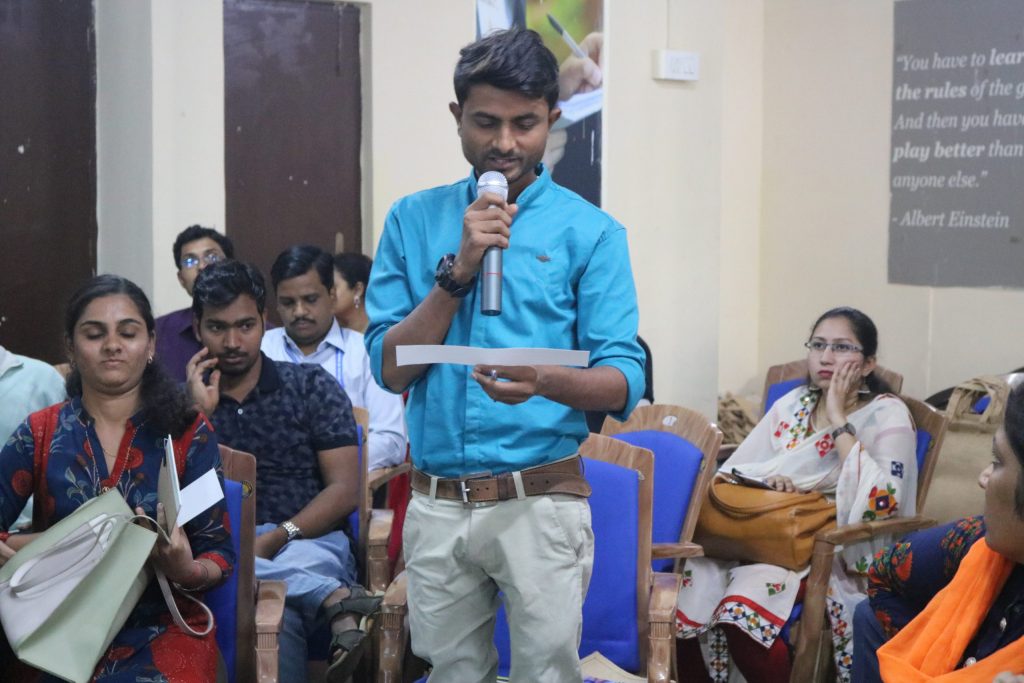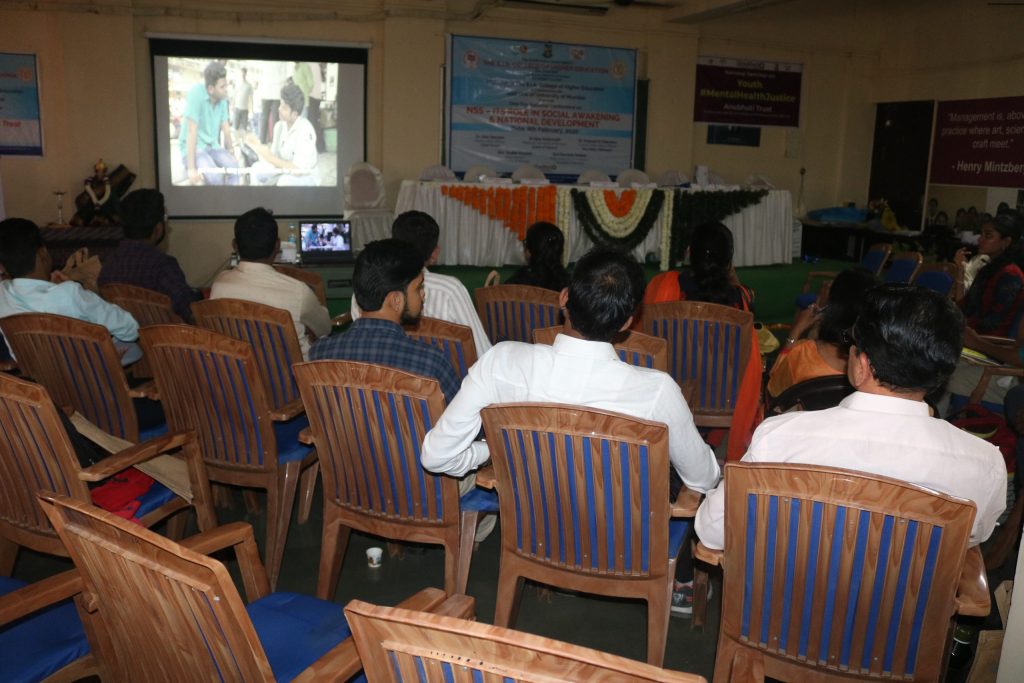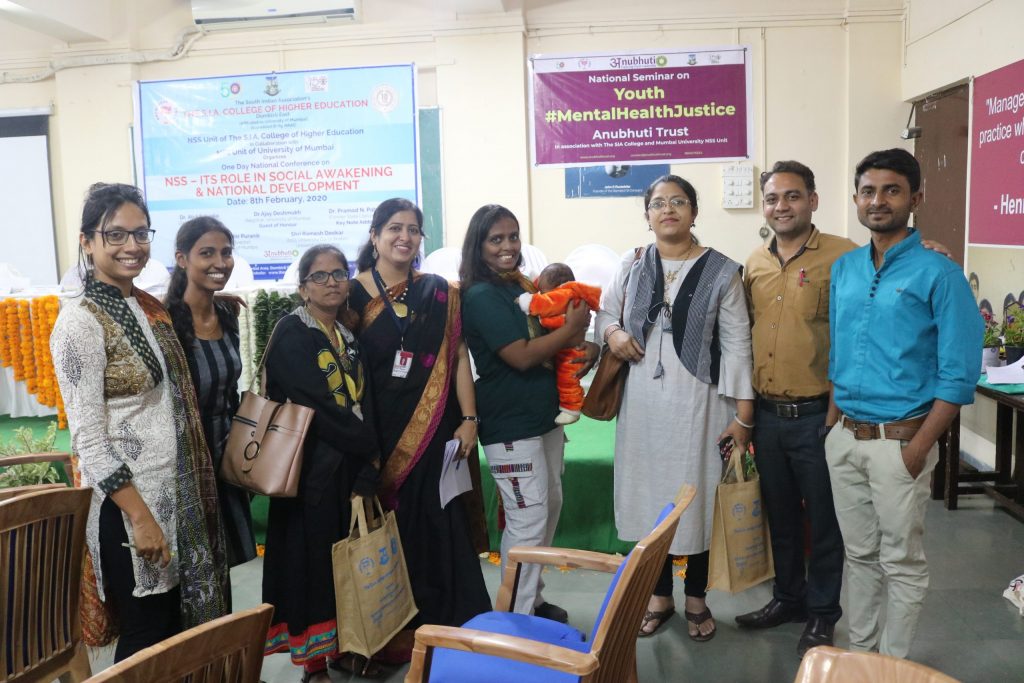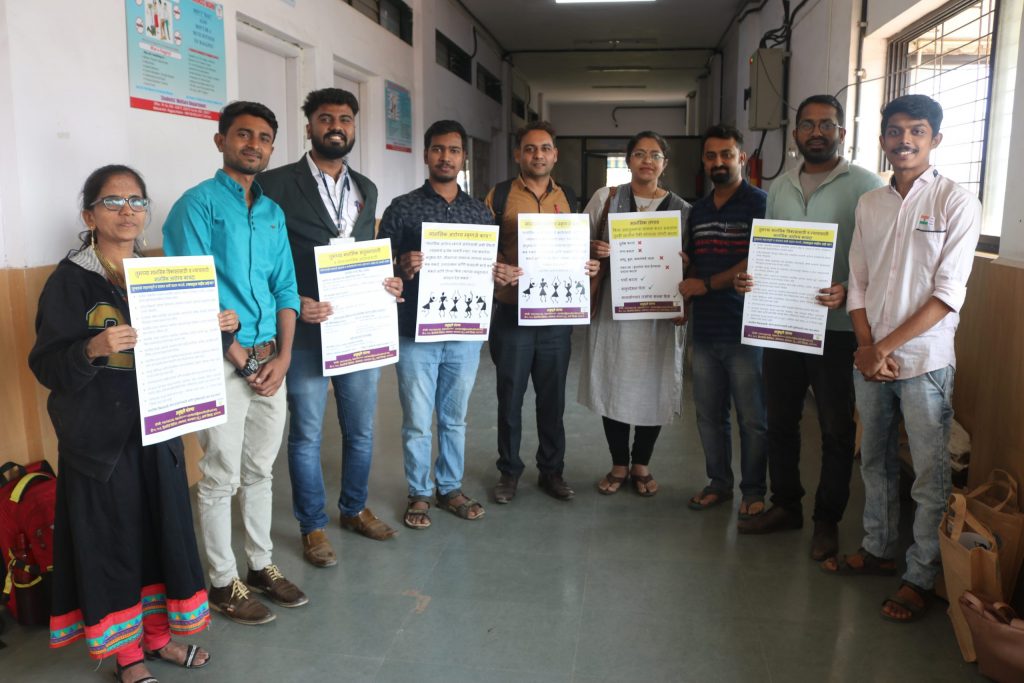Anubhuti organised two seminars on the subject of ‘Youth Mental Justice’ – one a city-wide seminar in collaboration with St. Andrew’s College in Bandra, Mumbai and another a National Conference with SIA College in Dombivali, Thane District. We thank the teachers, Principal and management of both colleges who supported this important subject. We regularly conduct trainings with SIA College, and this collaboration was a result of teachers’ support after a training done with their students on youth mental health in 2019.
Both together saw participation of more than 60 teachers, above 40 students, representing almost 40 different institutions from all over Maharashtra as well as the nearby Union Territory of Dadra and Nagar Haveli.
Seminar with St. Andrew’s College
The seminar at St. Andrew’s College was on 29th January 2020. It was a highly interactive seminar where the entire hall participated enthusiastically in expressing issues they have seen youth to be facing, what causes these issues, connection of these with the mental health of diverse youth and what we can do as educators, peers, college management, mental health (MH) practitioners, etc. to make our youth spaces mental health friendly and just.
We especially appreciate the teachers, many of them psychology professors and the college counsellors, who are trained MH practitioners, for openly acknowledging and accepting their drawbacks when dealing with youth mental health problems. These drawbacks included unawareness of caste/class/gender/sexuality contexts to MH issues; not being able to reach students from diverse backgrounds because openness to talk about mental health has still only reached a certain privileged class; unawareness of justice and dignity approaches to mental health and so on. They also shared how they are willing to learn and unlearn, take more proactive efforts, but that they need support from their management to make campuses mentally healthy:
- Budget for mental health friendly activities
- Hiring more counsellors, proper space for counselling centre
- Organising with priority talks, seminars, etc. on the topic
- Orienting all teachers and not just those of psychology dept., or college counsellors – on how their conduct, teaching, approachability and response to students are a part of supporting their mental health.
The seminar was enriched by talks by Arjun Kapoor from CMHLP, Pune and Prof. Prabha Desai from Sanmitra, Mumbai. Arjun threw light on the salient features, especially in the context of youth, of the Mental Healthcare Act 2017. This session saw a lot of interaction, questions, learning of new concepts and unlearning of old myths. Prof Prabha spoke about mental health in the context of gender, sharing experiences of some of the most vulnerable women in society such as sex workers, trafficked women, bar dancers, etc. This session threw light on the social and political aspects of mental health, where political decisions, laws, inaccessibility or insensitivity of administrative services and civil rights certainly affect the mental health but are almost never diagnosed.
The highlight of the seminar were when founder Deepa Pawar’s award-winning stories were read out – who is the thought leader behind these seminars and the entire project on Youth Mental Justice. Her stories were her own experiences of how things the majority class takes for granted such as sanitation, education, safety, dignity, etc., when violated, can and do directly impact our mental health. They can be read here:
As one participant shared after hearing:
“I had never thought that something as simple and that we take so much for granted that is toilet, can cause so much mental distress. I am at a loss for words.”
Some other feedback:
“There is a critical need for institutions to have some kind of mental help. Something I learned from this session is, Mental Illness is caused due to lack of resources and support. Hence, to conclude the institution need to provide open as well as separate sessions to enlighten on this issue.”
“As we all know that the social conditions and structure are not yet balanced which leads to unequal facilities and resources . This makes it very crucial to have Mental Justice as the above condition causes a lot of mental issues which people have to deal with.”
“For college I would preferably would like to create a better awareness about counselling as well they can try to communicate to the students whom they think might be facing issues as well as teacher should have such relationship with student that if they are facing problems they can share it with their teachers.”
“Mental health includes are emotional, psychological, and social wellbeing. It affects how we think, feel, and act. It also determines how to handle stress, make choices etc. Hence, mental health is important at all stages of life.”
“Should implement Mental Health Care Act at college and establish healthy and safe environment for mental health care as well as make changes for counselling in colleges.”
National Conference with SIA College
The national conference at SIA College on 8th February 2020, was organised in association with their NSS department and the NSS Unit of Mumbai University. The highlight of the event was the release of our research report done in 2019 with 1000 college students across Thane District to understand their mental health issues, social causes and support required to be mentally healthy. The report also highlights the concept of ‘Mental Justice’ – coined by our founder Deepa Pawar and which she is representing at the international platform Goalkeepers, working on the global SDGs. The report can be accessed here: (link to above post with report)
The report was released by dignitaries like Mumbai University NSS Director Shri Sudhir Puranik, Former NSS Maharashtra state Coordinator Dr. Pramod Pabrekar and Mumbai University Registrar Shri Ajay Deshmukh.
This was followed by Deepa conducting an interactive training on social hierarchies and mental health, connecting these to the Mental Healthcare Act 2017, and screening of our film made in 2019 on Youth Mental Justice. The response was overwhelming, with teachers sharing their very personal stories of struggle with mental health issues, asking what they can do to provide support to their students, and asking for sessions at their far-off & interior regions where students are far removed from any literacy of mental health but are certainly facing lot of issues due to everyday challenges.
Some heartfelt quotes as expressed by the participants (after a game on social labelling):
“As the group started telling me that my nature is equal to what I do for a livelihood and their laughter just made me realise that the sticker on my back is just a sticker but how the actual person who has that identity is made to feel by society.”
“I am well aware that I am not the label on my back but the stereotypes connected to this identity and the group’s mocking made me uncomfortable. I felt as if I am different. But different doesn’t mean I am uncivilised!”
“We all should stand for treating mental health as no different than physical health. I thank Anubhuti for taking up such a sensitive topic.”
“My mom went through mental illness and I was the one who looked after her. While I was sitting here in workshop I felt proud that I took a step in handling mental health.”
“As a youth, due to pressure to perform well in exams, my mental health was at edge of breaking. I was the first person from my village to finish college and future of entire youth generation after me depended on my performance. But despite lot of efforts I was not doing well in Engineering. I thought to attempt suicide various times but somehow I managed to survive, and today in this workshop I learned my life lesson that it’s okay to be sad, angry, in depression, and if you think you can’t handle take a visit to the hospital. But sad state is that where I live hospitals don’t offer such services and we have never even thought or heard of going for such help. I want to do whatever is possible for the students in my college who all come from interior villages so that no young person has to face what I faced. Please guide me how.”


